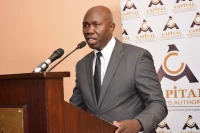With costs of fuel, electricity and basic food commodities on the rise, President William Ruto is grappling with a full-in tray in his first week in office. It was reported this week that top government officials and strategists have been holed up at State House reviewing fiscal policies including various subsidies – balancing expectations from ‘Hustlers’ who propelled them to power and the precarious economic situation the country finds itself in.
One of the things on the agenda, undoubtedly, is the Ksh500 billion pending bills conundrum. Suppliers are owed over Ksh500 billion by government agencies for various goods and services provided. The delayed payments have adversely impacted businesses, with many struggling or collapsing under the weight of loans taken to fulfill their obligations.
In his first speech as President on Tuesday, September 13 at Kasarani, Ruto promised a quick solution.
“We shall give priority to the expeditious resolution of our pending bills so that the government can meet its obligations and facilitate better economic performance,” the President declared. He explained that the Government would soon avail a proposal that would enable the suppliers to be paid within a shorter period. But what exactly is the plan?
Digging into the Kenya Kwanza manifesto as well as previous pronouncements by the President and his top economic advisers offers some insight into the options being explored by the new administration to tackle the pending bills.
READ ALSO>>9 Things Ruto Promised to Deliver Within 100 Days
In its manifesto, the Ruto-led Kenya Kwanza coalition stated that it would solve the issue by securitizing the pending bills.
Securitization refers to the conversion of debt into marketable securities, typically for the purpose of raising cash by selling them to other investors. While it would raise money for suppliers to get paid, the move would leave taxpayers saddled with potentially expensive debt.
“To remove pressure of settling pending bills from annual budget allocations, a transactions advisor will be engaged to advise on the securitization of the outstanding bills subject to verification,” the manifesto read in part.
Ruto’s top strategist, economist David Ndii had noted that the securitization would unlock capital for businesses thus spurring the economy. He also backed Deputy President Rigathi Gachagua, who, in his debate with Martha Karua, suggested that the Kenya Kwanza administration would float a Ksh500 Billion bond to ensure the pending bills are paid.
Ndii further dismissed arguments from Azimio policy hawks that the proposal by Kenya Kwanza would see Kenya pay a fortune to the investors who would buy off the Ksh500 billion pending bills.
“Pending bills are domestic, what we do with them has no bearing on foreign debt. Securitization is simply an off budget settlement. It’s also a economic stimulus because it relieve each flow constraints on businesses,” Ndii argued in June.
The Ruto campaign constantly tore into President Uhuru Kenyatta for leading a debt accumulation spree and has promised to “put the brakes on borrowing”. Ruto vowed to ensure the country’s mounting debt obligations, exacerbated by a weakening Shilling, would be met as he pledged to significantly increase tax revenues by expanding the tax base.
“I am not going anywhere near or even having a discussion on restructuring debt. We must pay our debt. We have the capacity to pay our debt… We will put the brakes on borrowing,” he stated in July.
“We will have more resources to repay our debt and we will be borrowing less, which is a double gain,” the President argued.
READ NEXT>>Meet the Billionaires Who Attended Ruto’s Inauguration

![President William Ruto during a ceremony to swear in judges on September 14, 2022. In his inauguration speech a day earlier, he promised to quickly resolve the matter of pending bills. [Photo/ @WilliamsRuto]](https://businesstoday.co.ke/wp-content/uploads/2022/09/Fcn3w0WX0AUcgyR.jpg)











I hope the pending bills will include cases that government lost and awards were granted by the courts e g. Republic v Commissioner of Cooperative Development & another Ex-Parte Joyce Wanjiku Runyora & another [2017] eKLR http://kenyalaw.org/caselaw/cases/view/137547
JOYCE WANJIKU & EVANSON MWAMACHI (suing on behalf of PREVAILING SAVINGS & CREDIT CO-OPERATIVE SOCIETY
To my understanding it includes awards from our courts against government, government agencies and government institutions